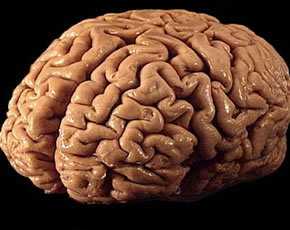 Depression and anxiety are more common among individuals with arthritis than among the general population. Yet, these mood disorders are still underdiagnosed and undertreated in arthritis patients despite data that depression and anxiety affect important outcomes such as functional ability, pain, and quality of life. The following study sought to characterize the burden of anxiety and depression among adults in the United States with arthritis over the age of 45 years and to identify factors associated with anxiety and depression in this population [Murphy LB, et al. Anxiety and depression among US adults with arthritis: prevalence and correlates. Arthritis Care & Research 2012;64(7):968-976].
Depression and anxiety are more common among individuals with arthritis than among the general population. Yet, these mood disorders are still underdiagnosed and undertreated in arthritis patients despite data that depression and anxiety affect important outcomes such as functional ability, pain, and quality of life. The following study sought to characterize the burden of anxiety and depression among adults in the United States with arthritis over the age of 45 years and to identify factors associated with anxiety and depression in this population [Murphy LB, et al. Anxiety and depression among US adults with arthritis: prevalence and correlates. Arthritis Care & Research 2012;64(7):968-976].
Methods:
Patients were included in the study from the Arthritis Conditions Health Effects Survey 2003-2005. This is a cross-sectional telephone survey of US adults age ≥45 years with self-reported doctor-diagnosed arthritis. Anxiety and depression were assessed with the Arthritis Impact Measurement Scale which is comprised of 12 questions (6 for anxiety and 6 for depression) and also measures the frequency of symptoms. The average subscale value for each condition (anxiety, depression) was calculated. The presence of the condition was defined as a mean value ≥4. Additional variables assessed during the phone interview included sociodemographic characteristics, arthritis symptoms, physical function, and modifiable health and self-management behaviors.
Results:
11.5 million adults with arthritis reported anxiety and 6.6 million reported depression. 5.5 million reported having both. Most respondents with depression also had anxiety (84%). Anxiety was highest among respondents age 45-64 years, had severe joint pain, and reported only ‘good’ or ‘poor/fair’ health. Anxiety was also high among those who had ‘no or moderate confidence in their ability to engage in moderate physical activity at least 3 times/week’. Depression was most frequently reported among those who had difficulty bathing or dressing themselves (48%). It was also common among those unemployed or unable to work, Hispanics, those with severe fatigue, those who had no/low confidence in their ability to manage their arthritis, and those who had no confidence in their ability to engage in moderate physical activity at least 3 times per week. Respondents with both anxiety and depression were most likely to seek help (57.1%). Help was sought from their doctor (82-83%), family/friends (45-46%), therapist/counselor (43-46%), and other support systems. But 55% of arthritis patients with anxiety, depression or both had not soughtany help in the past year despite their mood symptoms.
Conclusions:
One-third of the respondents in this survey of US adults with arthritis had anxiety, depression, or both. More than half of these individuals had not sought help for their mental health condition in the past year. Disability and limitations (even perceived limitations) in physical activity were closely correlated with depression and anxiety as well.
Editorial Comment:
Addressing mental health issues that frequently accompany chronic diseases, such as arthritis, are a critical component of the comprehensive care of our patients. Treatment can be complex and involve additional providers, medications, and support networks. It is worrisome that more than half of the patients with depression and anxiety have not sought help nor for these conditions, emphasizing the need for the health care community to recognize these entities and implement appropriate screening. We cannot expect our patients to follow our recommendations for exercise, medication compliance, and pain management until these important issues are also addressed.

